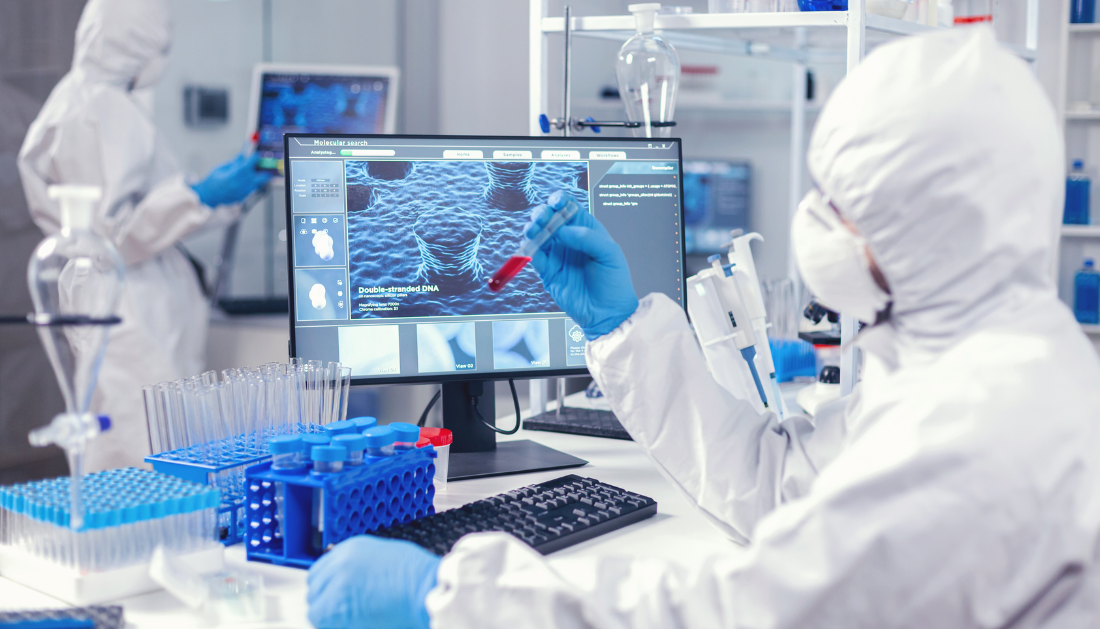

According to a WHO study, around 49 million instances of sepsis occur each year, with 11 million deaths caused by sepsis in 2017. This represents 20% of all global deaths.
It goes without saying that it is critical to obtain timely and accurate information about which germs have entered a patient’s blood so that doctors can prescribe the appropriate drugs to stop the infection. This is where two doctors from northern Norway confirmed a diagnostic breakthrough.
Important for small acute-care institutions
Hege Harboe-Sjåvik from Helgeland Hospital Trust and Kristoffer Hammer Endresen from Nordland Hospital Trust, in partnership with CANS—Centre for New Antibacterial Strategies at UiT The Arctic University of Norway, investigated a new approach for identifying bacteria in blood.
Their work appears in the journal APMIS
During the coronavirus pandemic, few smaller hospitals employed the BCID2 approach to evaluate COVID-19 testing, but it has yet to be deployed in Norway for quick sepsis analysis. The doctors wanted to see if this novel and rapid procedure works as well in smaller hospitals as it does in larger hospitals.
This would represent a huge step toward faster and more effective patient care for suspected sepsis at local hospitals. Smaller hospitals, which are frequently located distant from major laboratories, must identify the bacteria responsible for an infection in order to deliver the appropriate medications more rapidly.
Faster analyses, similarly good outcomes
From July to December 2021, researchers analyzed 160 blood samples with microorganisms collected at Helgeland Hospital Trust in Mo i Rana, Sandnessjøen, and Mosjøen. Rapid testing were conducted at local hospitals, while routine tests were done at a microbiological laboratory at the regional hospital in Bodø.
The doctors in Helgeland received test results two days quicker than before, and they were nearly as accurate as the tests done at the huge laboratory in Bodø, where the bacteria were cultivated in the customary way.
The new technology also demonstrated the possibility of offering improved antibiotic treatment to patients in one out of every four situations.
“The conclusion is that this is a reliable and accurate supplement to standard diagnostics for rapidly detecting bacteria in blood samples. Endresen believes the strategy has significant promise for more targeted antibiotic use in local hospitals.
“This is a novel method with significant potential for improved treatment and equal services at local hospitals. Two days’ faster test findings can have a substantial influence on critically ill patients at local hospitals. According to Harboe-Sjåvik, this can lead to more fair patient treatment by eliminating the need for patients or healthcare professionals to be transferred between hospitals. “These are important findings for a growing patient group at local hospitals.”
“The findings indicate that there are significant prospects for more accurate antibiotic use, and that this tool has the potential to reduce needless use of broad-spectrum antibiotics in local hospitals. “This is critical in the fight against antibiotic resistance,” Endresen says.
In little under 3% of cases, the new test failed to detect the bacteria found in the blood. There were no cases where the fast test detected germs in the blood when none existed, known as false positives.
For more information:
Hege Harboe‐Sjåvik et al, FilmArray (BCID2) provides essential and timely results in bloodstream infections in small acute care hospitals without conventional microbiology services, APMIS (2024). DOI: 10.1111/apm.13374
more recommended stories
 Nanoplastics in Brain Tissue and Neurological Risk
Nanoplastics in Brain Tissue and Neurological RiskKey Takeaways for HCPs Nanoplastics are.
 AI Predicts Chronic GVHD Risk After Stem Cell Transplant
AI Predicts Chronic GVHD Risk After Stem Cell TransplantKey Takeaways A new AI-driven tool,.
 Red Meat Consumption Linked to Higher Diabetes Odds
Red Meat Consumption Linked to Higher Diabetes OddsKey Takeaways Higher intake of total,.
 Pediatric Crohn’s Disease Microbial Signature Identified
Pediatric Crohn’s Disease Microbial Signature IdentifiedKey Points at a Glance NYU.
 Nanovaccine Design Boosts Immune Attack on HPV Tumors
Nanovaccine Design Boosts Immune Attack on HPV TumorsKey Highlights Reconfiguring peptide orientation significantly.
 High-Fat Diets Cause Damage to Metabolic Health
High-Fat Diets Cause Damage to Metabolic HealthKey Points Takeaways High-fat and ketogenic.
 Acute Ischemic Stroke: New Evidence for Neuroprotection
Acute Ischemic Stroke: New Evidence for NeuroprotectionKey Highlights A Phase III clinical.
 Statins Rarely Cause Side Effects, Large Trials Show
Statins Rarely Cause Side Effects, Large Trials ShowKey Points at a Glance Large.
 Anxiety Reduction and Emotional Support on Social Media
Anxiety Reduction and Emotional Support on Social MediaKey Summary Anxiety commonly begins in.
 Liquid Biopsy Measures Epigenetic Instability in Cancer
Liquid Biopsy Measures Epigenetic Instability in CancerKey Takeaways Johns Hopkins researchers developed.

Leave a Comment